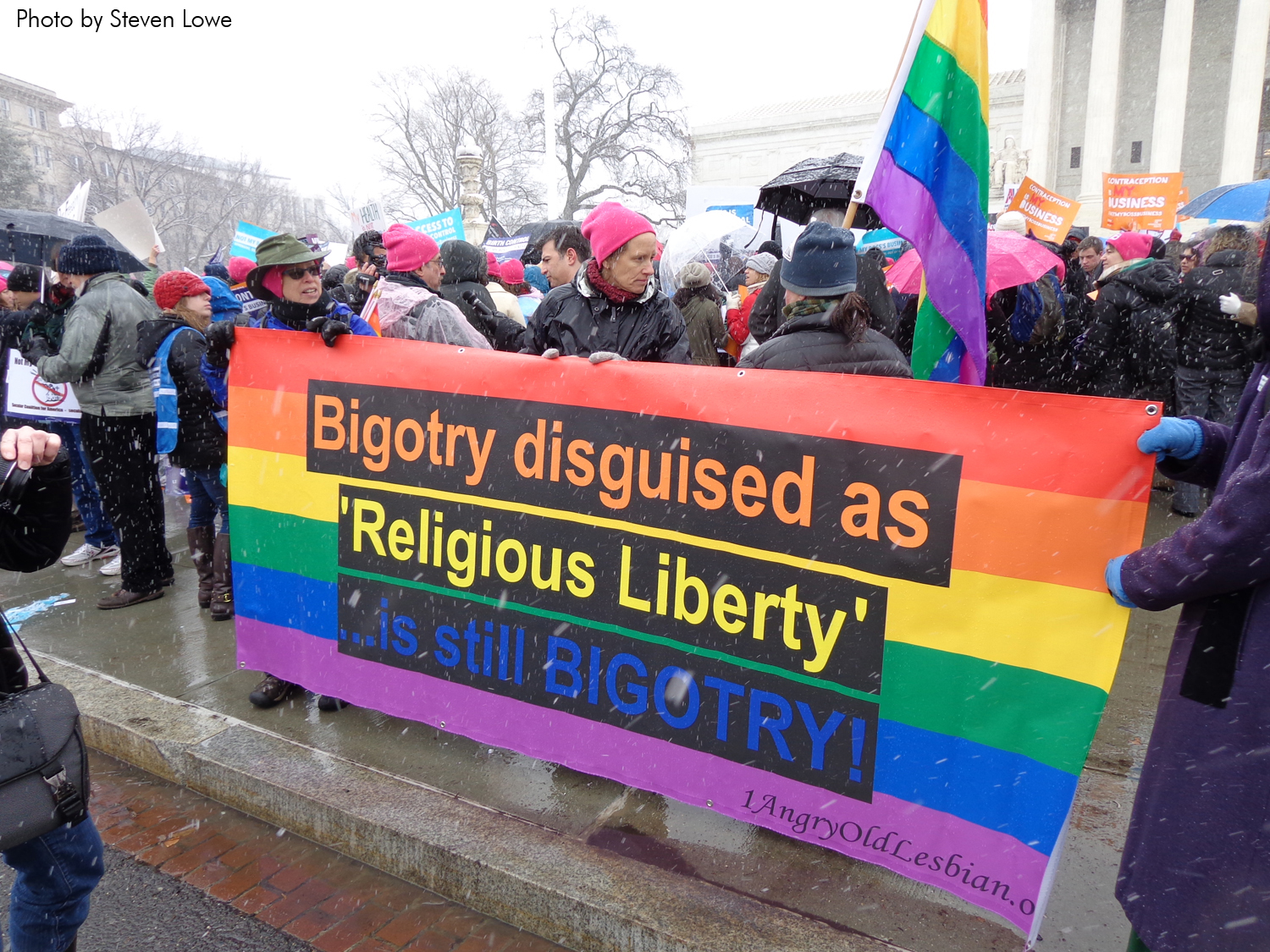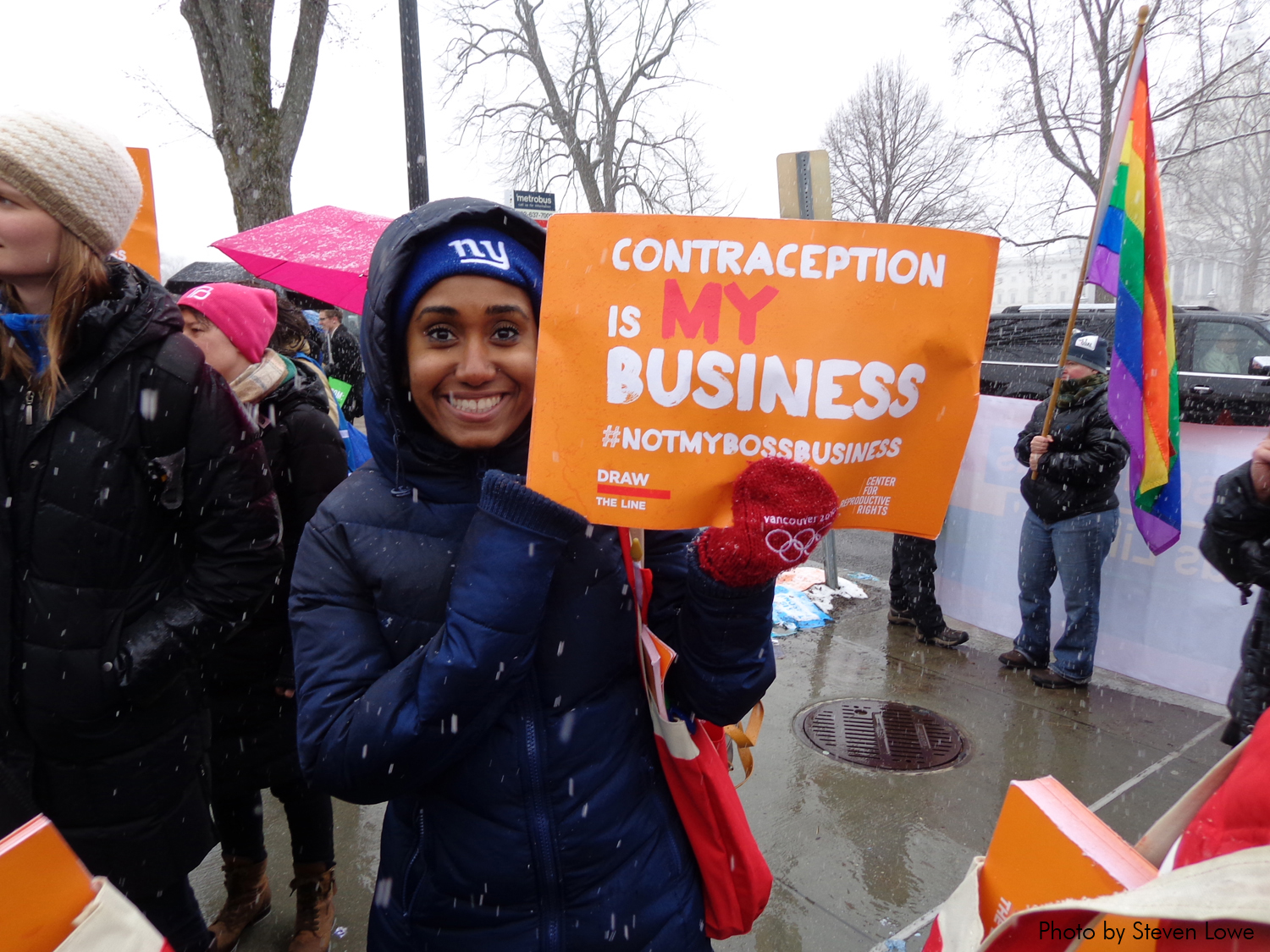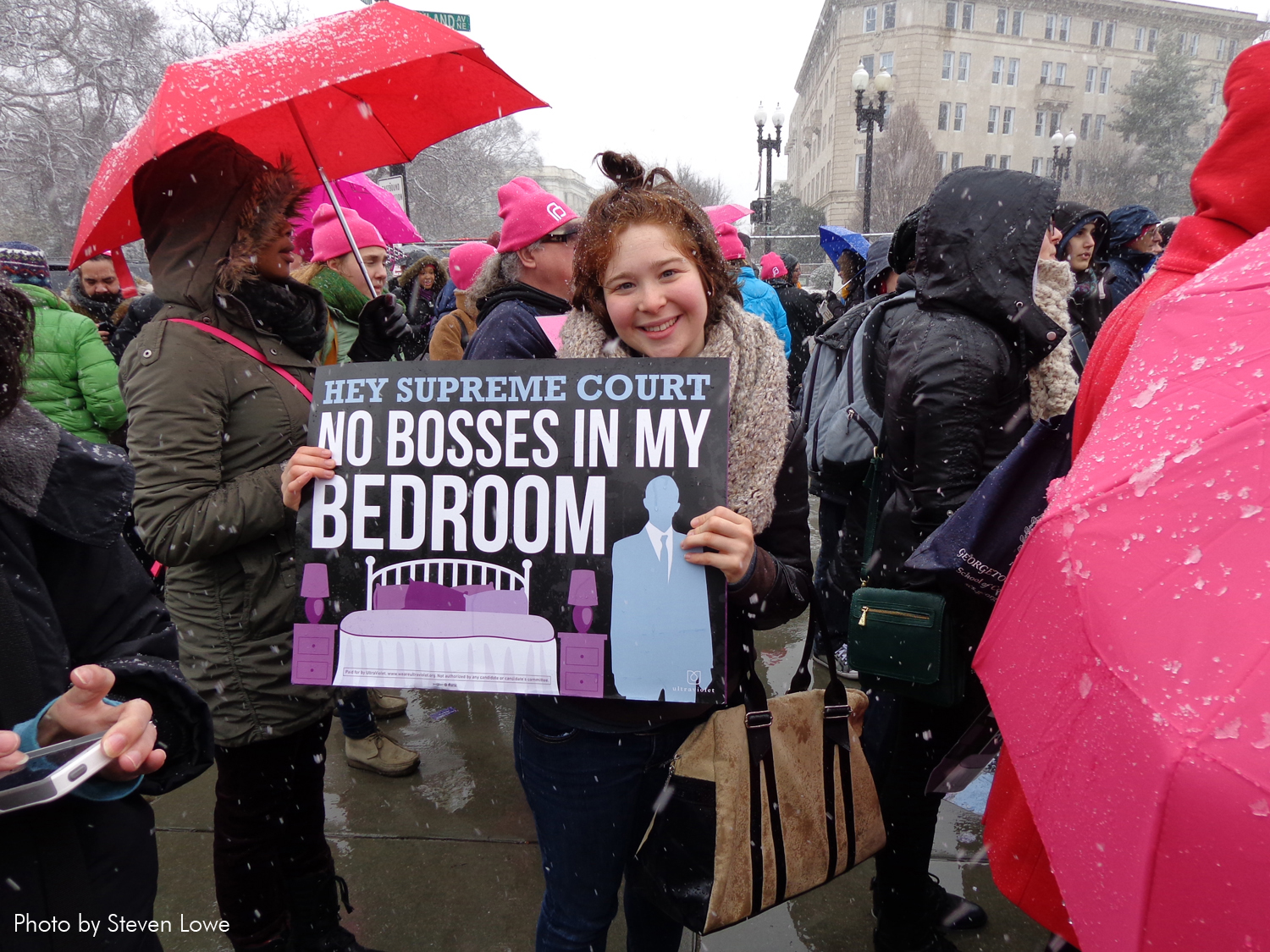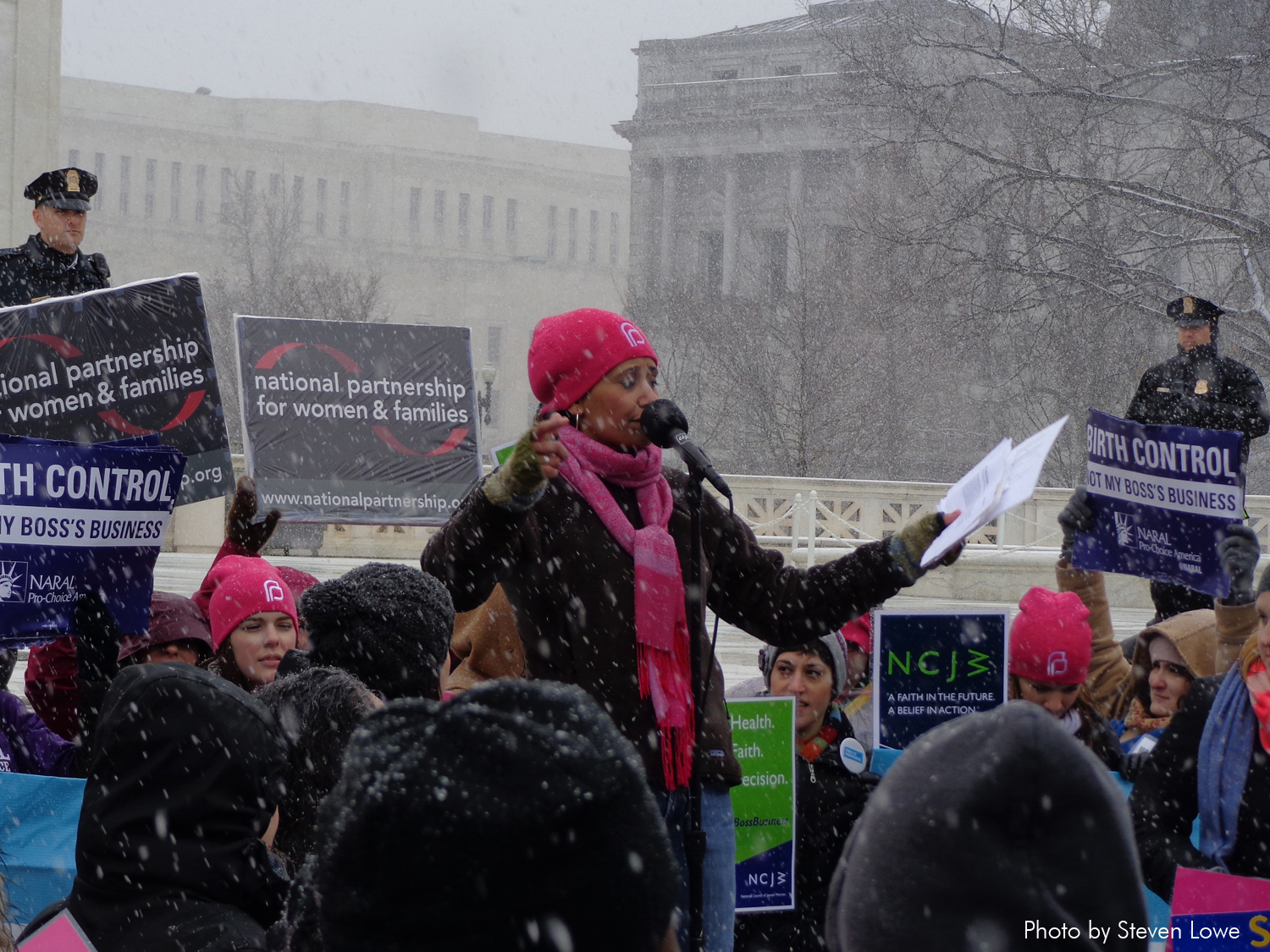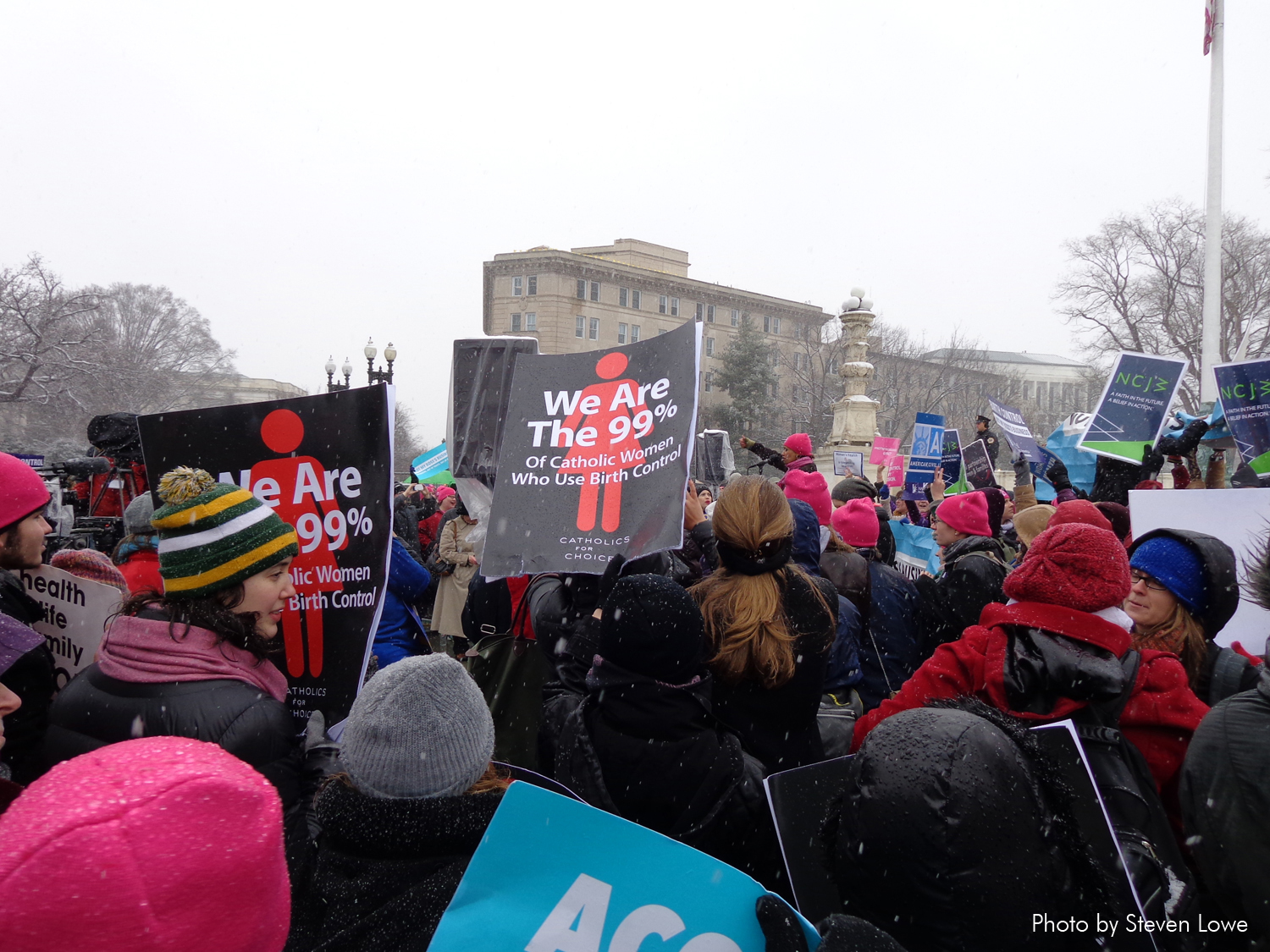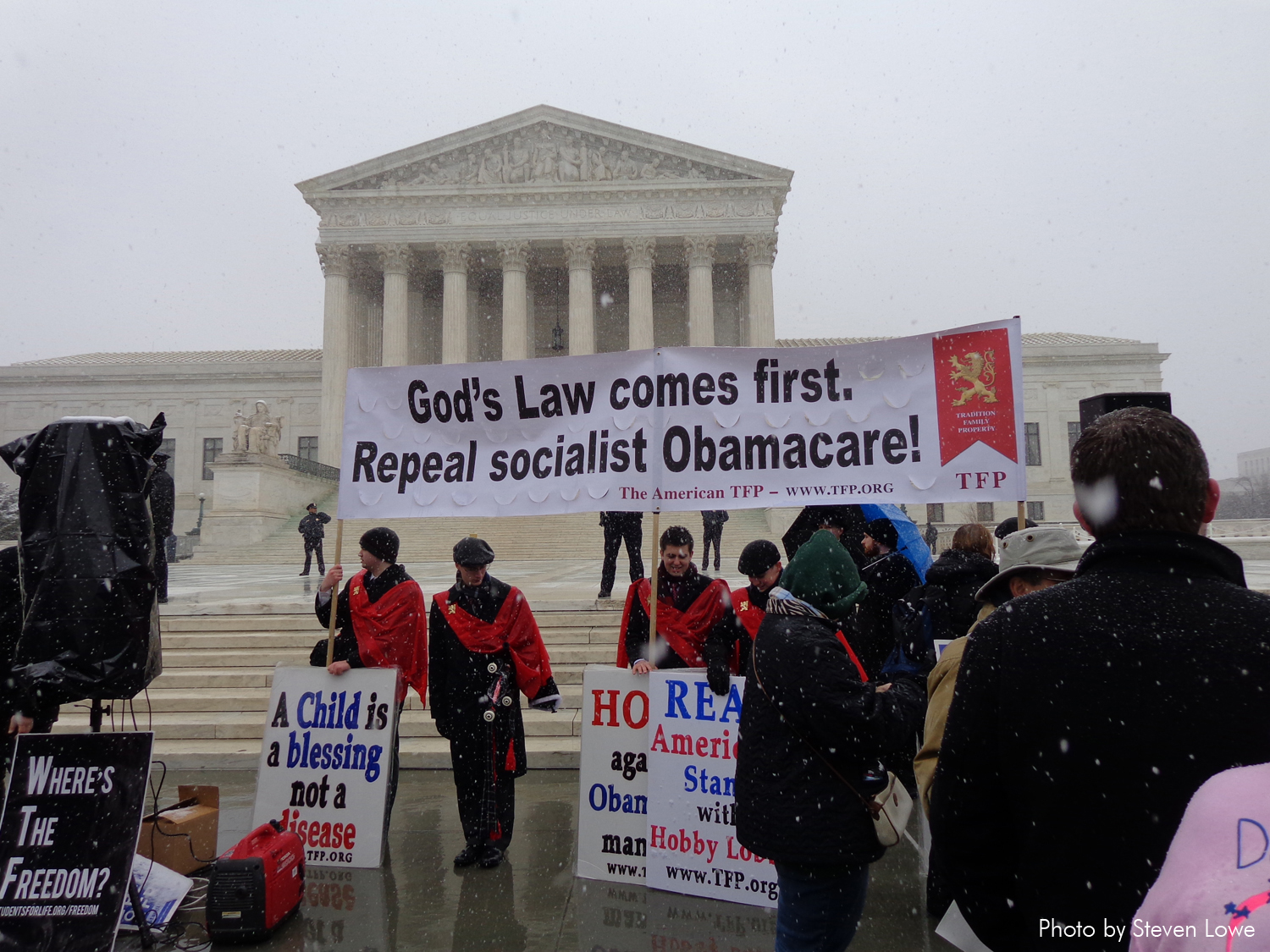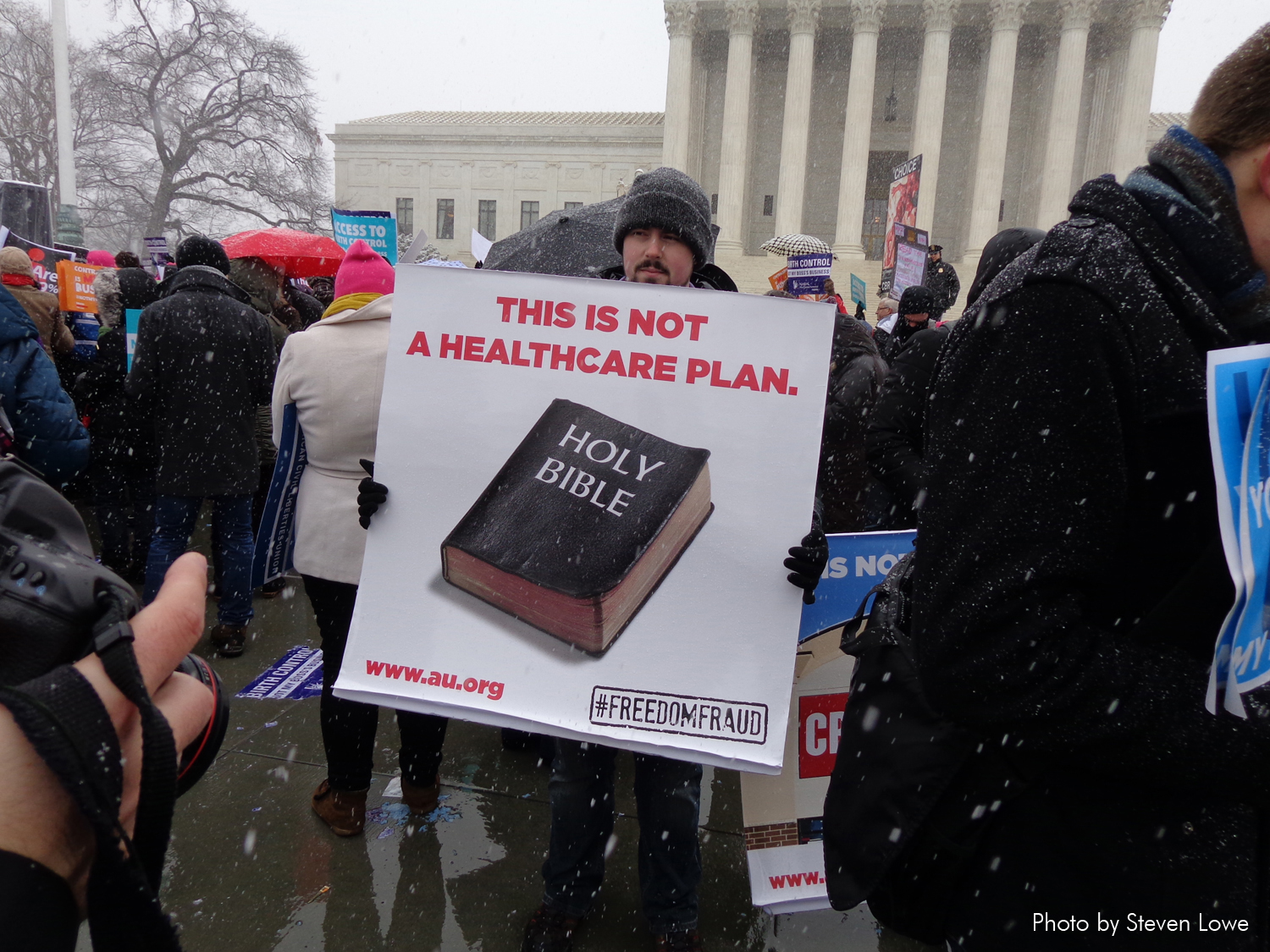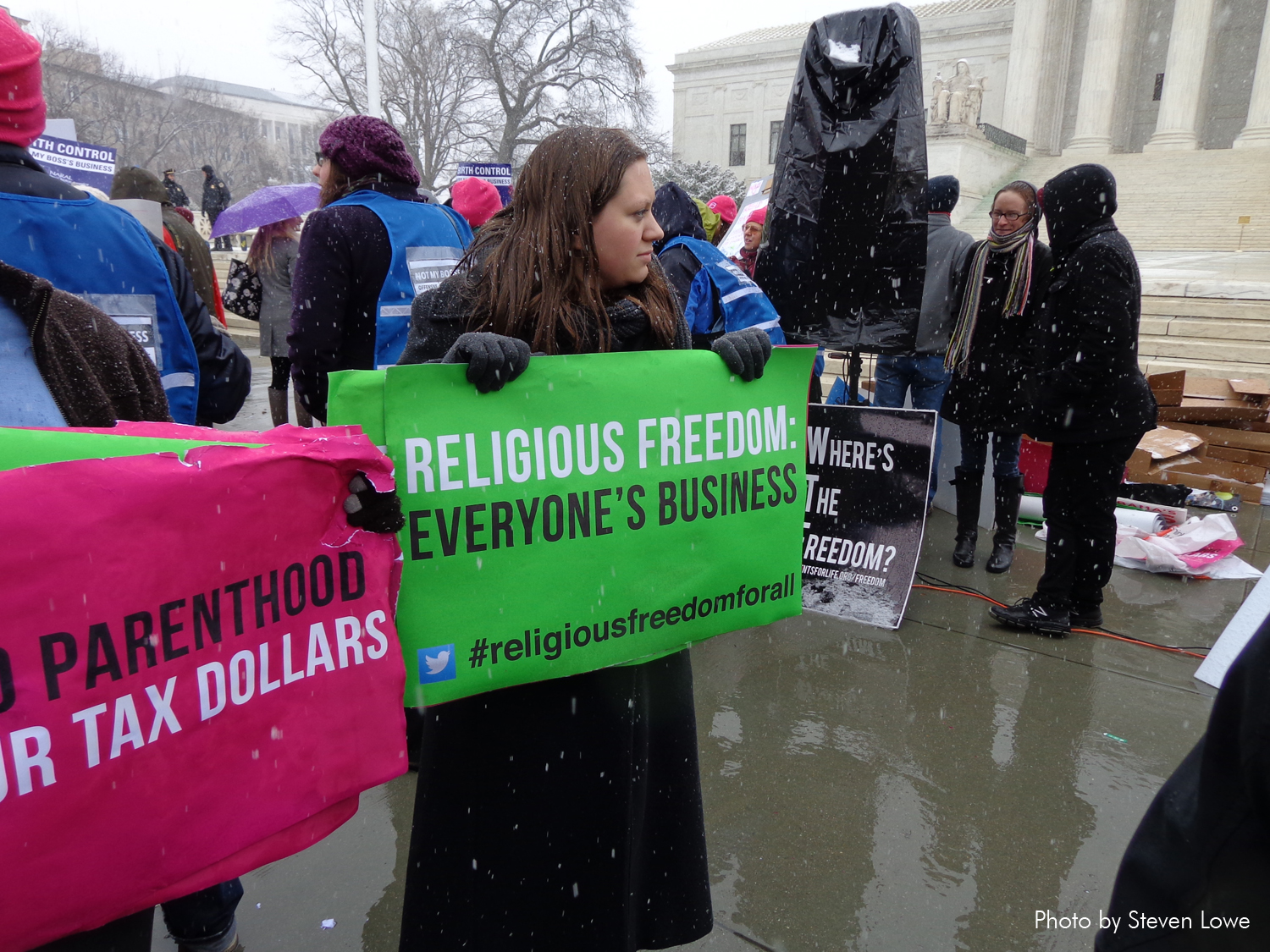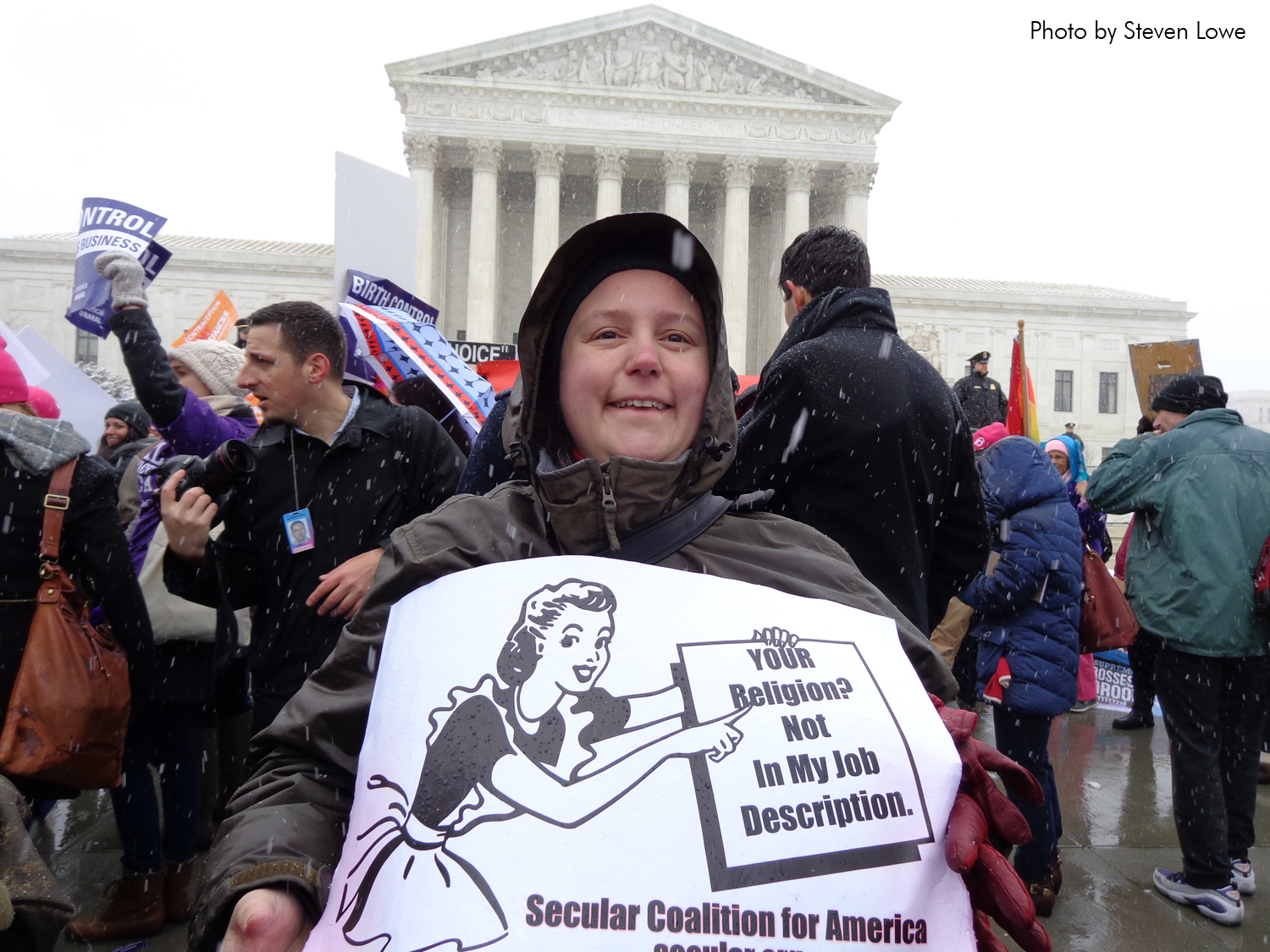What’s Really Going on With Contraceptives? Supreme Court Hears Hobby Lobby’s Religious Objections to Affordable Care Act
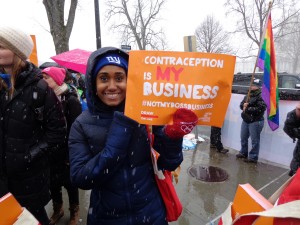 Today's rally outside of the Supreme Court during Sebilius v. Hobby Lobby. Photo by Steven Lowe.
Today's rally outside of the Supreme Court during Sebilius v. Hobby Lobby. Photo by Steven Lowe. Check out the bottom of this post for photos from today’s rally at the Supreme Court.
It seems like we keep going round and round on this issue. We know the basic story: religious institutions object to the part of the Affordable Care Act that mandates they provide contraception to their workers, and even though the Supreme Court upheld the law in 2012, they’re still whining about the costs of providing healthcare for women and other non-gender binary people who can get pregnant.
Now the government is imposing strict fines on those institutions out of compliance—up to $100 a day per worker in some cases—and the issue is going up before the Supreme Court again today in Sebelius v. Hobby Lobby Stores, Inc. (the American Humanist Association has signed onto an amicus brief in the case). It’s even the same lawyers as last time! Obama administration Solicitor General Donald B. Verrilli Jr. and former Bush administration Solicitor General Paul Clement will go head to head in a rematch.
As someone who uses contraception for personal and medical reasons, I have to ask two questions when I see these employers so vehemently objecting to healthcare for women. The first is, what are they really objecting to? Second, is it their religious devotion—or their misogyny—fueling that passion?
Make no mistake: refusing to provide contraceptives for women and non-gender binary people is misogyny. As humanists, our duty is to the science, and here’s what the science shows.
In places where contraception is readily available, unwanted pregnancies and abortions go down by at least 68%, according to the Contraceptive Choice Project. The Guttmacher Institute states that more than 99% of women between the ages of 15 and 44 will use some form of contraceptive in their life; 58% of those women will use contraception for reasons other than preventing pregnancy, such as treatment for excessive menstrual bleeding, menstrual pain and acne. And according to the Center for Disease Control and Prevention, one in nine women will need emergency contraception in her lifetime.
More importantly than all of that, though, is having the ability to control one’s sexual and reproductive health. This is a human right, and women’s lives improve by leaps and bounds when those decisions are placed in their own hands.
So it isn’t just a lack of understanding of the science of contraception that fuels these employers (though some of them do wrongly believe that emergency contraception is equal to or the same as abortion). It isn’t just that they don’t want to pay for women to have sexual freedom. It isn’t just that they hold their religious beliefs above the health and wellbeing of 51% of this country.
This is, at its fundamental level, about women’s rights. It’s about human rights. So if the question is, can religious businesses be hit with fines of up to $100 per worker per day for refusing to provide contraceptive choices in their insurance, then the answer should be yes.
If they want to continue to live in a time where women and other non-gender binary people who can become pregnant are denied their human rights, then they’re going to have to pay for it.
The Supreme Court’s decision is expected sometime in June. But I don’t expect that to be the end of this argument, and neither should you. As long as women’s rights are checked as an “option” on the paperwork instead of as a “necessity,” we’ll be having this conversation for a very long time.
